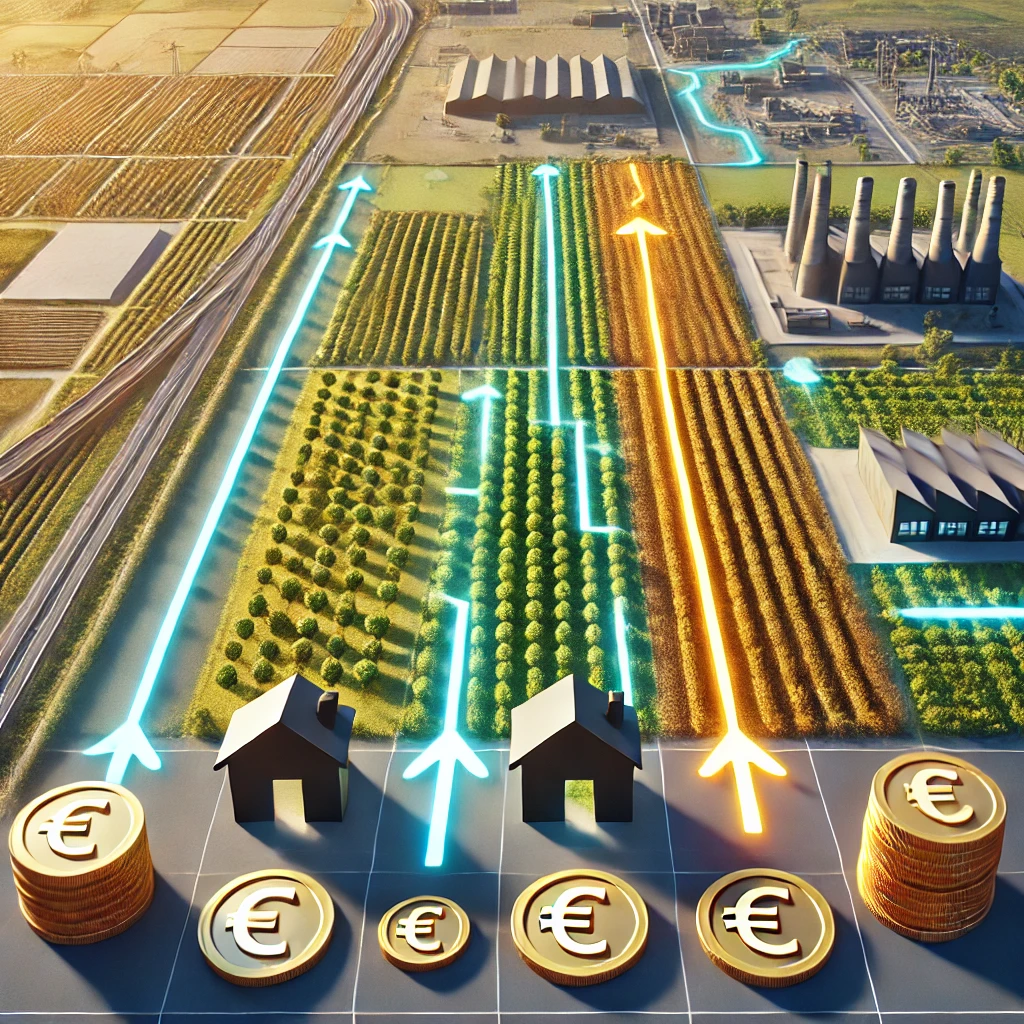‘Land Value Sharing’ Levy
The government is progressing with the introduction of a ‘land value sharing’ levy that could significantly affect property developers. The new Land (Zoning Value Sharing) Bill 2024 outlines how the state will capture a portion of the increased land value when it is rezoned for development. This levy will be triggered by planning permission and is expected to have a considerable impact on projects moving forward.
The groundwork for this levy has been ongoing for several years, with initial proposals in 2021 and subsequent revisions in 2023. The Bill formalises many of these concepts, outlining key criteria for land subject to the levy, methods of calculating its value, and potential exemptions.
Key Provisions of the Bill
Land Subject to the Levy
The levy will apply to land classified as ‘relevant land,’ which includes properties zoned for:
- Residential use
- Mixed-use developments including residential
- Commercial or industrial use
- Areas within strategic development zones
Local authorities will be responsible for identifying relevant land and publishing maps by October 2025. These maps will be updated with any changes to zoning plans or under the directive of the Minister for Housing, Local Government, and Heritage.
Calculating the Levy
The levy has been set at 25% of the land’s zoning value, a reduction from the originally proposed 30%. The zoning value is determined by the difference between the land’s market value based on its established use (such as agricultural) and its value as rezoned for development. Developers must pay the levy before submitting a commencement notice for construction.
Developer Responsibilities
Landowners will be required to provide local authorities with assessments of their land’s zoning value within six months of the publication of zoning maps. If these valuations are not submitted, developers may risk losing planning approval. Local authorities will have the power to verify valuations and impose a charge for unpaid levies, recoverable as a debt.
Exemptions and Social Housing Incentives
Exemptions to the levy include small-scale developments of fewer than five housing units or commercial projects under 500 square meters. Additionally, there are provisions for repaying part or all of the levy for land developed for certain social housing projects. These exemptions aim to support affordable housing while ensuring the levy applies to larger, more profitable developments.
Criminal Offences and Penalties
The bill introduces penalties for providing false information regarding the levy. Offenders may face fines up to €500,000 and/or imprisonment for up to five years. These measures aim to prevent developers from evading the levy through deceptive practices, such as subdividing projects to fall below the levy thresholds.
Conclusion
The new Land (Zoning Value Sharing) Bill 2024 introduces a significant change to how land development is regulated. Developers should carefully consider the levy when planning projects, as it represents an additional cost on top of existing planning fees. While the reduced rate of 25% offers some relief, the levy will undoubtedly shape future development plans. Developers, particularly those involved in social housing, may find relief through exemptions or repayments, but the overall financial impact of the levy should not be underestimated.
